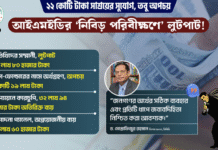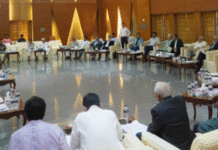The US also believes that trials should be fair and transparent, the state department spokesperson Psaki says
The United States understands the importance of ongoing war crimes trial in Bangladesh’s historical perspective.
US Department of State’s spokesperson Jen Psaki made the comment on Wednesday. She was replying to queries form journalists as part of her daily briefing.
She said: “We understand the importance of this process in closing a painful chapter of Bangladesh’s history.”
Referring to war criminal Motiur Rahman Nizami’s death sentence, a journalist asked if the United States believed that the trial was fair and transparent.
Noting that the US supports bringing to justice those who committed atrocities in the 1971 war, the state department spokesperson Psaki said they also believe that trials should be fair and transparent.
“The trials should be in accordance with international standards Bangladesh has agreed to uphold through its ratification of international agreements, including the International Covenant on Civil and Political Rights,” Psaki added.
While answering the question, state department spokesperson Psaki referred to US Ambassador-at-Large for war crimes issues Stephen Rapp’s observation on death penalty.
Psaki said: “As Ambassador-at-Large Stephen Rapp has said countries that impose a death penalty must do so with great care in accordance with very high standards of due process and respect for fair trial guarantees.
I’m not in a position to evaluate the trial, other than to convey that those are values and standards that we expect countries to abide by.”
Jamaat-e-Islami Ameer Motiur Rahman Nizami was sentenced to death for committing crimes against humanity during the 1971 Liberation War.
Eight charges out of total 16, which include conspiracy, planning, complicity, incitement and active participation were proved, the International Crimes Tribunal-1 said.
Source: Dhaka Tribune









